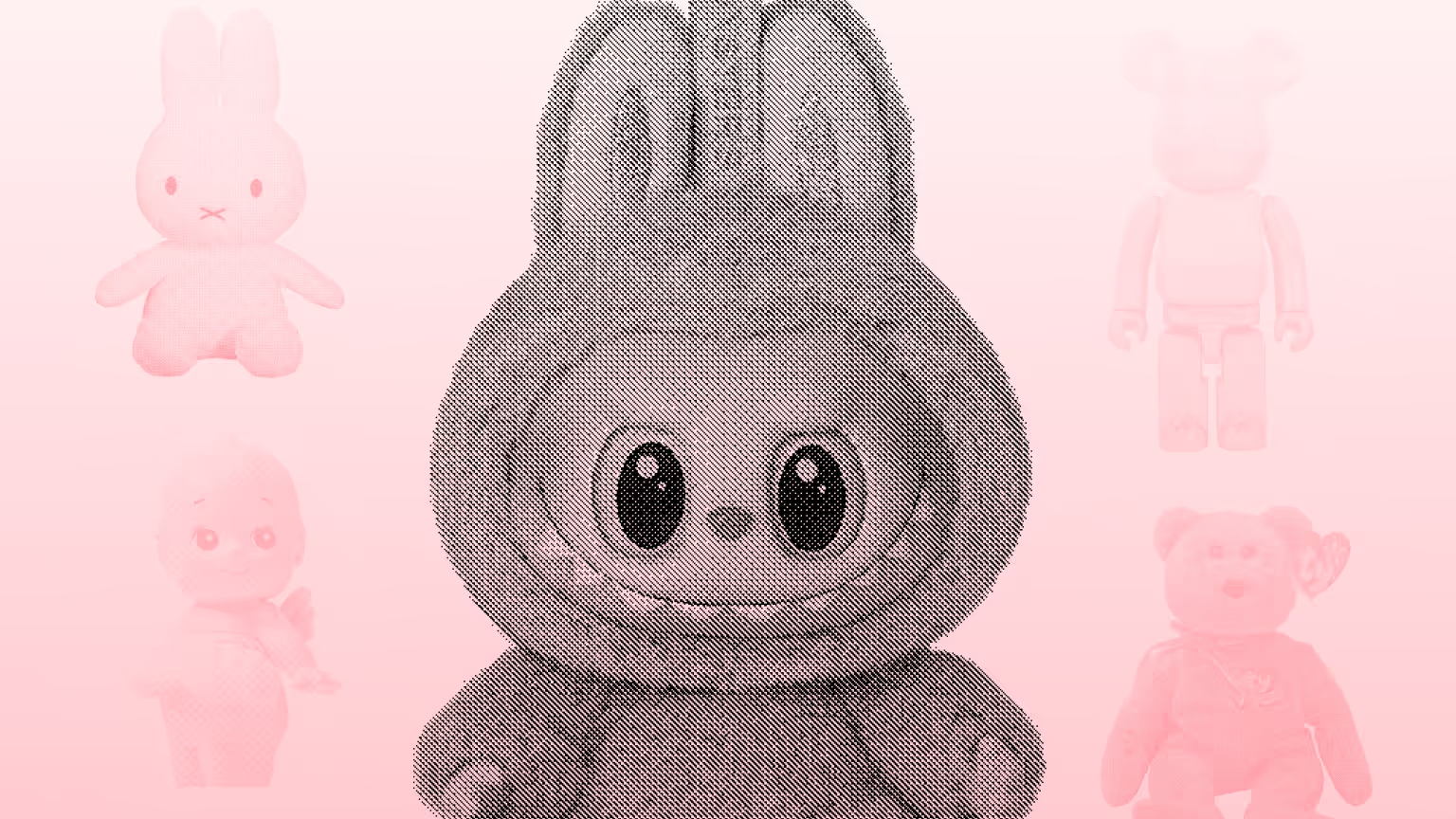The Rise and Fall of the Labubu

Join the community





Op-ed
First off, what is Labubu? Labubu is a plush doll sold in all sizes, but the Labubu keychain is the most popular. The toys are based on storybook characters by artist Kasing Lung. Lung teamed up with Chinese toy company, POP MART in 2019, to make his characters real. These little characters come in all kinds of personas, outfits, and colors, and they've quickly become a high-priced collectible.
Pop consumerism, disposable status symbols, and the lipstick effect
No, Labubus haven’t fallen yet. But I know they will. I know they will because Sonny Angels have died down. And Smiskis. I know because I remember Domo dolls and Beanie Babies. In fact, blind boxes and toys have followed a similar pattern to other rapidly accelerating microtrends, like moving from Hydroflasks to Swells to Stanleys to Owalas. So let’s talk about it.
The Labubu hashtag has generated over 1.4 million videos on TikTok alone. Many of the videos are Labubu blind box openings where collectors unbox mystery toys to see if they got the Labubu dollthey wanted. Oftentimes, as the blind box model depends on for revenue, collectors don’t get the one they want and keep buying more. But revenue reigns supreme. POP MART, the owners of the Labubu empire, saw a revenue increase of nearly double in 2024 to $1.81 billion. Revenue from Labubu made up nearly 22% of its overall revenue.
Labubu dolls retail for $20 to $300. If you’re not going for the limited edition toys, you can find one at a reasonable (theoretically) price. While they’re not very expensive, I still think they’ve become a status symbol. Here’s why.For one, they function as an in-group/out-group establisher. The same way a band tee signals to other fans that you’re alike, Labubus are an if-you-know-you-know toy. The problem is, with social media, everyone knows. This isn’t unique to Labubus or even collector toys in general. We see this with fashion too, where trends are not local or group-exclusive, but massive and worldwide, often losing any original sociological “signaling” significance.
Are we all becoming each other? It definitely feels like it when you can walk down the street and see ten girls wearing the exact same watch they found on TikTok shop. But I digress.
Even though Labubus aren’t always expensive, they’re still a “luxury” purchase because that they don’t serve any function besides visual pleasure or social signaling. They’re a small way to indulge without spending an arm and a leg. Even so, a $40 Labubu is a lot these days. The cost of living is up majorly, and many young adults are struggling financially, living at home, and abandoning long-term financial goals because they seem so out of reach.
This is known as the “lipstick effect.” It’s an economic theory that proposes consumers buy more “mini luxuries” when the economy is suffering. Think, spending $50 on a YSL Lipstick to treat yourself on a Saturday. Because consumers feel like their long term goals like buying a house are unattainable, they indulge in “affordable” luxuries. The lipstick effect is morally neutral. It’s just an observation of behavior during economic recession. The problem arises when masses of people are spending their money on disposable plastic products and giving into more rapidly accelerating microtrends. It isn’t just tough on your wallet, it’s bad for the planet.
“The toy industry — $40 billion and growing in North America — has the highest plastic intensity, according to a major United Nations report on plastic use across all consumer goods.” — Preety Sharma, News Decoder
Labubus, Smiskis, Sonny Angels, Monchichis, BearBricks... they’re all made of plastic. And they’ll most likely end up in the trash. In fact, nearly 80% of toys wind up in landfills, incinerators or the ocean. We’re playing a dangerous game with our plastic consumption. Plastic creation (the drilling of fossil fuels) warms the planet, but it’s not just that. Plastic has made it’s way into our brains, our blood, and even our placentas.
I’m not trying to shame consumers for their purchases, before you jump on me in the comments. I fall victim to trends all the time. Just last week, in a moment of weakness, I bought a plastic mop bucket on TikTok Shop.We’re living in a world where we’re constantly bombarded with marketing. Big companies use manipulative and sinister tactics to encourage insecurity and increase sales. You’re not a fool for indulging in a trend. You’re only human.I know you’re also thinking, Why should my $40 purchases matter when giant companies are out here polluting by the millions of tons? But hear me out.
It’s not the consumer’s fault that we’re in a devastating climate crisis. You’re just living in the system you were born into. You, like most people right now, are probably feeling financially insecure. You’re probably overworked and tired from being underpaid for all of it. And all of these things lead us to buying the cheap stuff — because it costs less, because it gets here faster, because it’s what’s available. But while all of that is true, it’s also true that where we spend our money matters. These multi-billion dollar companies get their money from us.
We know that boycotts work. We know that demand impacts supply. We know that the climate crisis is real, and bad, and that household purchases influence 65% of global emissions. So I’m not telling you to give up the little luxuries that get you through the day. Or at least not all of them. But I am telling you to examine your relationship with convenience culture and consumerism. I do think reflecting on our purchases is good for everyone. We should ask ourselves what brings us joy and why and for how long. Who is hurt by our purchases? Who makes what we buy? Where does this go when I’m done with it?









.jpg)



